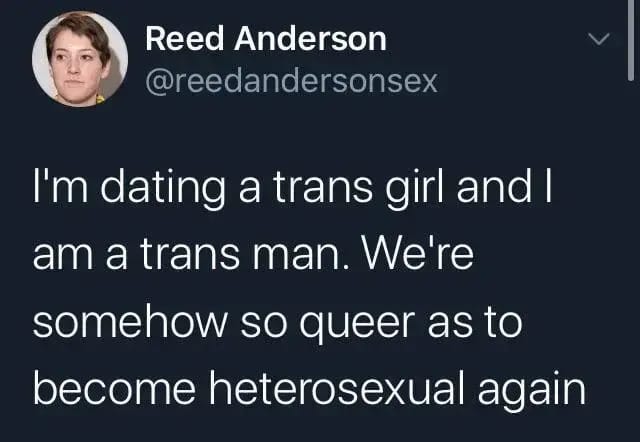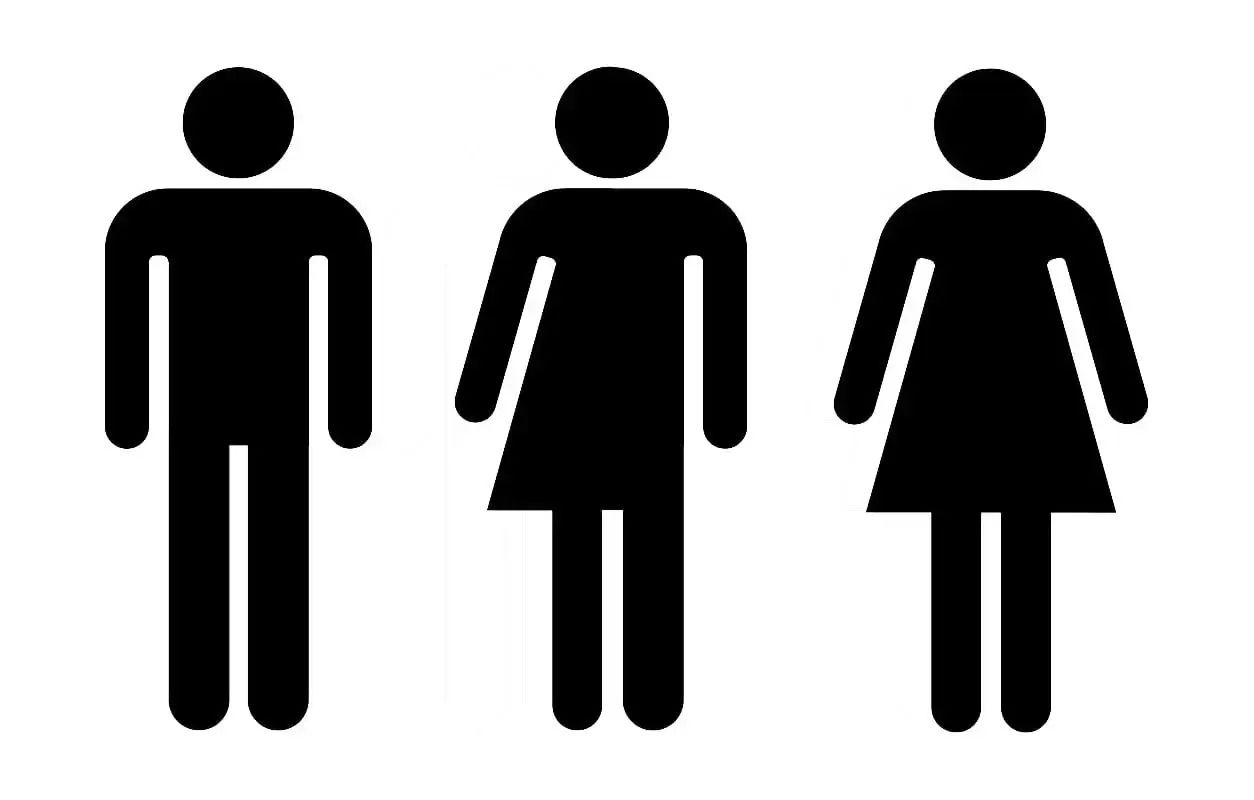- Queer Word
- Posts
- 🌈 can a heterosexual person identify as queer? 🌈
🌈 can a heterosexual person identify as queer? 🌈
Is 'queer' a thing you are, or a thing you do?
QUEER WORD
QUEER HETEROSEXUALITY

What It Means:
a heterosexual person who also identifies with aspects of queer identity, such as having non-traditional gender expressions, mannerisms, or, basically anything considered outside of heterosexual norms.
Let’s Use It In A Sentence:
He calls it queer heterosexuality; I call it straightness with a little bit of eyeliner nail polish.
Can A Heterosexual, Cisgender Person Identify As Queer?
I’m honestly struggling with answering this question.
My knee-jerk reaction is ‘No! of course not! Don’t be silly! Preposterous!’.
But, then, when I scratch a little at my assumptions and arguments, the certainty starts to unravel. I get tied up in these theoretical knots and it gets confusing and overwhelming and then I need to go and have a lie down.
So maybe you can help me chew this over?
Let’s start with…
What The Hell Even Is ‘Queer Heterosexuality’ In The First Place?
First, a disclaimer - OF COURSE someone can be both queer and heterosexual. A transgender man, for example, can be simultaneously super-straight and super-queer.

But, back in the 90s when this term first emerged it seems as though they were associating the word ‘queer’ with ‘non-heterosexual’.
The term first emerged in feminist/queer-theory circles where the edges and limitations of queerness were being argued over.
The term slipped out of academia with The Village Voice’s 2003 piece, ‘The Queer Heterosexual.’ By the mid-2000s, sociologist Robert Heasley was coining terms like 'straight-queer males’, which was basically shorthand for heterosexual men who rallied against the whole toxic masculinity thing.
Then, in the 2010s, as queerness felt more accepted (and had, dare I say, a certain cool factor), the term gained traction within certain scenes that liked to think of themselves as ahead of the curve.
It took a bit of a wobble after actor James Franco’s frankly ridiculous chapbook Straight James / Gay James was released in 2016 (which seems to posit the question ‘what if i was gay?’ and was rightfully lambasted), but seems to have mostly recovered in the intervening years.

Why, James Franco? WHY?
Right, now that we’ve had that whistle-stop introduction, let’s look at some of the arguments for and against.
Argument For - Queerness Is About Outsider Status, Not Just Who You Fancy
I guess this all hinges on whether you view queer as a non-cis, non-heterosexual identity, or as a broader political stance against gender and sexual normativity.
Because if ‘queer’ is a position at the edges of the norm rather than a fixed LGBTQ+ identity, then some straight, cis people can argue they belong there.
Plenty of heterosexual, cis folks don’t fit the script: they are viewed by the mainstream as ‘weird’, buck hegemonic masculinity/femininity, build non-normative relationships, get read as ‘not straight enough.’
If we apply this lens, queer isn’t just who you fancy; it’s how you refuse the ‘default’.
Argument Against - But Heterosexual People Haven’t Suffered Like Us Queers
This is the one I struggle with the most.
Because I absolutely hear and agree with the argument - a huge part of being queer is knowing what it feels like to be pushed out - ostracised, excluded, experiencing real-world discrimination and hostility. And how could someone who benefits from heteronormativity ever fully understand that?
And yet… there’s something about defining queerness in this deficit-based way that doesn’t sit right with me.
I don’t want our identity to exist purely as a reaction to other people’s cruelty. Not just because there’s so much more to queerness than suffering, but because that framing invites needless hierarchies about who is ‘more’ queer based on who has suffered most.
Plus, if we lock ‘suffering’ into the definition, what happens as acceptance grows? Do future kids with trauma-free childhoods somehow count as less queer? Or does ‘queerness’ just stop existing as society improves?
Argument For - Category-Bending Is The Whole Point Anyway
Here’s where it might just get a little too philosophical. What if we considered ‘queer’ as not just a way of being, but a method of disruption?
The categories that we use, like man/woman or straight/gay only hold power because we keep performing them in the same predictable way.
Queerness interrupts that performance.

So if a straight person refuses their script - reimagines masculinity or feminitiy, plays with gendered style, rejects traditional relationship norms - they're doing something inherently queer, even if their desires remain heterosexual.
Queer heterosexuality is like this huge stress test: can someone inhabit straightness in a way that destabilises the whole binary without changing who they want to sleep with?
The value in this reading is the pressure it puts on the borders. If the border wobbles, suddenly the ‘normal’ centre stops looking so definitive and inevitable.
(of course, the counter-argument here is that this way of thinking re-centres heterosexuality and thins out queerness)
Argument Against - If Everyone Gets To Be Queer Then No One Is Queer
In order for a group to exist, some people can’t be in it. If ‘queer’ stretches to cover every smidgen of non-conformity, it’ll stop meaning anything. And if it stops meaning anything it’ll stop helping anyone.
The politics blur; communities become diluted, and the practical stuff (safety, healthcare, community) becomes much harder to argue for or maintain.
When everyone's special, no one is. When everyone's oppressed, no one is. When everyone's queer... well, I think you see where I’m going.
And, yet…. wouldn’t it be wonderful if difference was so normal that ‘queer’ wasn’t needed? Wouldn’t that solve everything? Why COULDN’T we invite everyone in?
So, yeah, do you see what I mean? Looking at the same question from these different angles you can almost see how a straight, cis person might justify calling themselves queer. Almost.
But, what do you think? Have I nudged you either way with my rambling? Have I tied myself in these knots for nothing?
Can a straight, cisgender person identify as ‘queer’?
Can a straight, cisgender person identify as queer? |